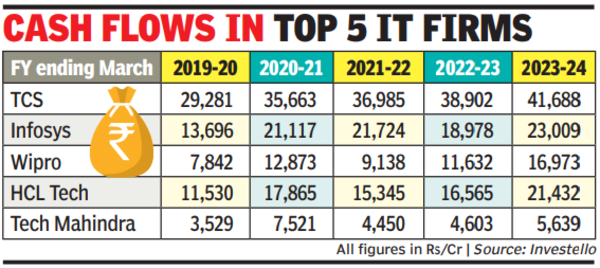The rupee appreciated 27 paise to ₹84.96 against the U.S. dollar in early trade on Tuesday (April 29, 2025), supported by robust foreign fund inflows, stronger domestic data, and easing global tensions.
Forex traders said India’s manufacturing and industrial production, both expanded by 3%, reflecting the health of domestic demand. Moreover, a strong rally in domestic equities driven by a surge in foreign fund flows further boosted sentiments.
However, caution lingers, as any escalation in tensions between India and Pakistan could swiftly reverse gains and pressurise the rupee, much like past geopolitical episodes, they noted.
At the interbank foreign exchange, the domestic unit opened at ₹85.06 against the greenback, then gained ground and touched ₹84.96, registering a gain of 27 paise over its previous close.
In initial trade, the rupee also touched an early low of ₹85.15 against the greenback.
On Monday (April 28), the rupee appreciated 18 paise to close at ₹85.23 against the U.S. dollar.

“On the global front, a more diplomatic tone has emerged. U.S./ Treasury Secretary Scott Bessent indicated that negotiations with Asian allies, including India and Japan, are progressing well. Importantly, China has shown signs of de-escalation by offering key exemptions on tariffs, signalling a willingness to reduce trade tensions,” CR Forex Advisors MD Amit Pabari said.
Measures such as exempting certain goods from tariffs and softening automotive tariffs show a deliberate effort to avoid an all-out trade war and provide breathing room to global supply chains, Mr. Pabari added.
Meanwhile, the dollar index, which gauges the greenback’s strength against a basket of six currencies, was trading higher by 0.17% at 99.18.
Brent crude, the global oil benchmark, fell 0.68% at $65.41 per barrel in futures trade.
In the domestic equity market, the 30-share BSE Sensex advanced 404.00 points or 0.50% to 80,622.37, while the Nifty rose 115.40 points or 0.47% to 24,443.90.
Foreign institutional investors (FIIs) bought equities worth ₹2,474.10 crore on a net basis on Monday (April 28), according to exchange data.
On the domestic macroeconomic front, India’s industrial production growth remained almost flat at 3% in March sequentially, though, on a year-on-year basis, it slipped from 5.5%, mainly due to poor performance of the manufacturing, mining, and power sectors.
Published – April 29, 2025 11:49 am IST
























